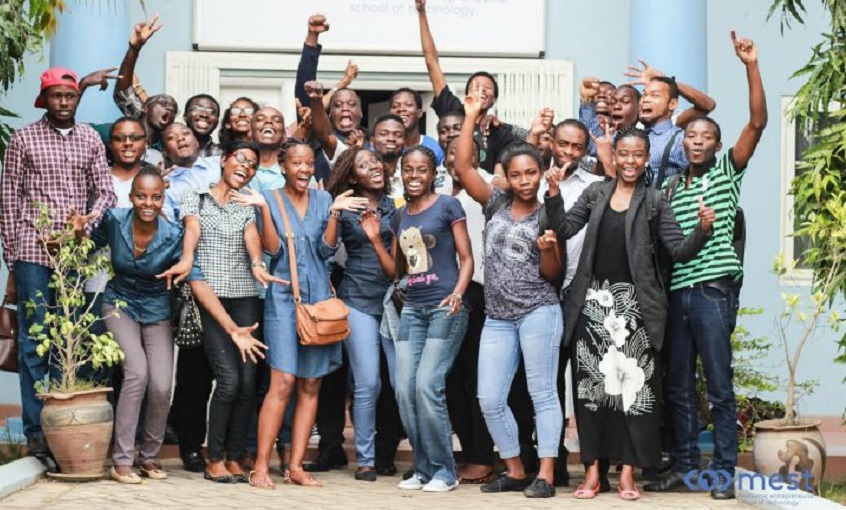The year ahead will see the continued rise of tech hubs and incubators in Africa, expected to number close to 300 by year-end, with the new community of hubs to be characterised by increased verticalisation for a more effective, value-laden incubation and co-working model.
In December, Disrupt Africa featured five tech hubs which have sprung up in the far corners of Africa, in places even we didn’t expect. Of note, 2015 saw a new hub and entrepreneurship development centre, Africa House, open in Somalia – the first such project to launch in the Somali regions; while the Gambia also saw its first tech hub open, when Jokkolabs expanded to the country launching a space in the capital Banjul.
We also looked back over the past year of activity at Africa’s accelerators. From the first day of 2015, when Nigerian billionaire Tony Elumelu threw open the doors for applications to the US$100 million Tony Elumelu Foundation Entrepreneurship Programme (TEEP); to the year closing on a high, with Paris-based incubator NUMA expanding its operations to Africa, launching in Casablanca, Morocco; Disrupt Africa traced a year of activity which featured multiple notable developments each month of the year, spanning the whole continent.
Only two months into the year, 2016 has gotten off to a similarly exciting start. Ethiopian incubator iceaddis partnered Kenya-based GrowthAfrica to run jointly deliver Ethiopia’s first startup acceleration programme; while Somalia-based entrepreneurship organisation Startup Somali announced it will this year launch its accelerator programme.
This year we have already met for the first time hubs which have been working under the radar, such as Angola’s KiandaHub, managed by a team of seven dedicated to creating an entrepreneurship ecosystem in the country; nHub Nigeria, working to make the Northern town of Jos – afflicted by Boko Haram’s violence – into Africa’s next outsourcing hub; and Sote Hub, bringing ICT and entrepreneurship training to Kenya’s rural county of Taita Taveta.
Not to mention the swathe of organisations which have already opened applications for 2016 editions of established incubation programmes.
These developments have served to confirm our feelings, that we are seeing the start of the snowball of the co-working and incubation trend in Africa.
Contrary to popularly cited – but outdated – World Bank figures, Disrupt Africa has estimated previously that there are actually over 200 tech hubs and incubators in operation across the African continent. This is a conservative estimate, and by the end of 2016 we expect to have recorded close to 300 tech hubs active on the African continent, given the surge in activity we are witnessing.
However, as the number of hubs rises, what will characterise Africa’s tech institutions?
In a guest post for Disrupt Africa, Marcello Schermer, regional manager for Africa at Seedstars World, recently wrote that in his view, there is too little specialisation and differentiation among incubation programmes in Africa.
“Most programmes are industry agnostic and take entrepreneurs from many industries and stages and pair them with a broad variety of mentors,” Schermer wrote.
“The problem is that most accelerator run into the issue of not having the right mentor for the right startup who can really make an impact but instead focus on generic mentorship that only adds marginal value. In addition, they assume a one size fits all approach to their acceleration programme, meaning that a fintech startup will go through the same programme as an e-commerce startup and both startups will be accelerated for an equal amount of time, ignoring the inherent differences between industries, founders and development stages.”
Players in the ecosystem seem to echo his sentiments, and we see an increasing tendency towards specialisation of hubs and programmes.
So far in 2016, the BitHub incubator launched in Kenya – dedicated to the development of blockchain technology across Africa; AlphaCode opened in Johannesburg, aiming to be a collaborative hub for next generation fintech entrepreneurs; and global science and technology firm Merck launched its equity-free e-health accelerator programme in Nairobi… to name but a few examples of the recent shift towards verticalisation of tech hubs in Africa.
We expect the rise of niche-focused spaces and programmes to continue across the year, to result in more value-filled engagement and collaboration at co-working platforms; and a more effective model for incubation.


